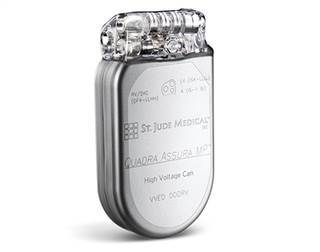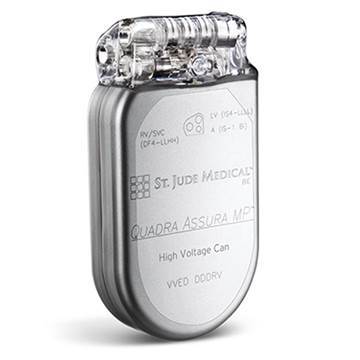Two people have died after the batteries in two implanted heart defibrillators made by St. Jude Medical failed early, and now the company has issued warnings about 400,000 of the devices.
While the company doesn’t recommend that doctors remove the devices from patients, it says doctors need to get in touch with users and check them out.
The problem is that the batteries die almost without warning, the Food and Drug Administration says. The device is supposed to give a warning called an Elective Replacement Indicator (ERI) alert three months before the battery in it is fully depleted.
The affected devices are St. Jude Medical Implantable Cardioverter Defibrillator (ICD) and Cardiac Resynchronization Therapy Defibrillator (CRT-D) device.


“If the battery runs out, the ICD or CRT-D will be unable to deliver life-saving pacing or shocks, which could lead to patient death,” the FDA said.
“The patients most at risk are those with a high likelihood of requiring life-saving shocks and those who are pacemaker dependent.”
“If the battery runs out, the ICD or CRT-D will be unable to deliver life-saving pacing or shocks, which could lead to patient death.”
St. Jude has sold 398,740 of the devices worldwide, but the company claims fewer than one percent of them are faulty.
“Two deaths (one in the U.S.), have been associated with devices that could not provide needed shock therapy due to premature battery depletion,” the FDA said.
“Ten patients (nine in the U.S.), have reported fainting from devices that could not provide needed pacing therapy due to premature battery depletion.
Another 37 got dizzy, the FDA said.
So far, the flaw has only affected devices made before May 2015.
“Pacemaker-dependent patients with a device that has reached Elective Replacement Indicator should be treated as a medical emergency,” the FDA said.
St. Jude says most patients should be fine. “The likelihood that this will impact your health is low, as the vast majority of devices have not experienced premature battery depletion,” it said in a statement.
“We have asked physicians to contact their patients with information about this advisory. Device replacement is not recommended unless the physician determines otherwise,” St. Jude said.
“Patients can learn if their device is included in the advisory by visiting a dedicated webpage: www.sjm.com/batteryadvisory.”







